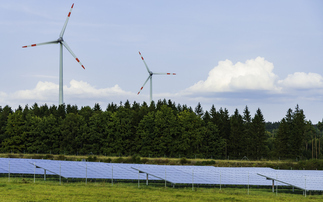Embattled mining company says fossil fuels will remain mainstay of energy market, as Citigroup becomes the third major bank to cut financing to coal industry
Glencore has reportedly urged climate negotiators attending the Paris summit in December to adopt a policy that recognises coal as an important source of energy.
The mining giant and commodities trader, whose shares have been on a rollercoaster over the past week, insists fossil fuels will remain the bedrock of the world's energy supply despite new policies being introduced globally to reduce carbon emissions.
"We need global policy that acknowledges the global energy reality that fossil fuels including coal will continue to be used," Peter Freyberg, head of global coal assets at Glencore, said in a speech in Australia, according to Reuters.
"We also need a policy which addresses the funding gap to facilitate the build of high-efficiency, low emission power stations.
But Freyberg said International Energy Agency projections that global energy demand will rise by 37 per cent over the next 25 years showed that coal has a future, pointing to a rise in new coal-powered stations in Taiwan, India and Vietnam among others.
"Fossil fuels, including coal, will continue to dominate the global energy mix," he said.
The company has this year been the biggest faller on the Financial Times Stock Exchange 100 Index (FTSE 100) this year, having declined more than 77 per cent at one point. The past week has been particularly turbulent, resulting in the company planning to sell assets and reduce debt, as well as being more open about its trading operations to assure investors.
There has been an even bigger fall in the coal market, with 26 companies going bust in the past three years. However, with the highest debt levels in the sector, Glencore is seen as especially vulnerable. Glencore employs around 180,000 people and operates in more than 50 countries.
A recent report by analysts CreditSights estimates four major banks - Bank of America, Citigroup, JPMorgan Chase and Morgan Stanley - have each lent $350m to Glencore PLC, putting them at risk of losses.
On Monday, Citigroup became the third major bank to cut financing to the coal industry, saying it will continue a trend of reducing its global credit exposure to coal mining companies in future. Bank of America and Crédit Agricole have already made similar commitments this year.
Lindsey Allen, executive director of the Rainforest Action Network, which campaigns for banks to cut ties with the industry, said the news showed "major momentum away from financing coal by the banking sector".
This article is part of BusinessGreen's Road to Paris hub, hosted in association with PwC







